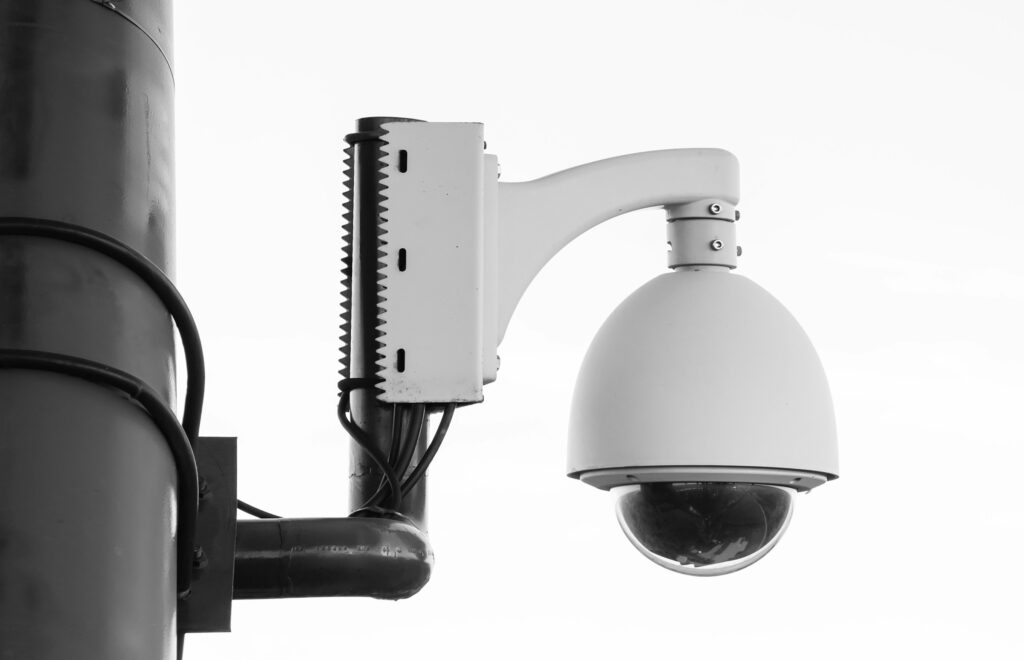The coalition between the CDU/CSU and SPD is planning a far-reaching expansion of surveillance powers for security authorities in Germany. These plans to strengthen the Black-red surveillance are causing discussions about the balance between security and fundamental rights. An internal paper from the negotiating group on domestic and legal policy reveals the intention to adapt existing laws and introduce new measures.
The planned amendments aim to give the authorities more opportunities to Mass surveillance to give. This raises questions about proportionality and the protection of Basic rights on. Citizens and Data protectionists express concerns about possible interference in the Privacy through extended monitoring powers.
Important findings
- Black-Red plans to extend surveillance powers
- Internal paper reveals plans to amend the law
- Discussion about the balance between security and fundamental rights
- Concerns regarding Mass surveillance and Privacy
- Effects on Civil rights are debated
Background to the surveillance laws in Germany
The history of surveillance in Germany is closely linked to the political developments of the post-war period. From the occupying powers to the Cold War, surveillance has steadily expanded and, in the process, the Civil rights often pushed into the background.
Historical development of monitoring powers
After the Second World War, the Western occupying powers began monitoring mail and telephone traffic. These measures were continued during the Cold War in order to identify potential spies. In the 1950s, legal foundations were created that allowed massive interventions in the Privacy made possible.
The emergency laws of 1968 considerably extended the powers of surveillance. Citizens had no right to information about their surveillance, which raised concerns about a Surveillance state fueled. In the 1970s, new methods such as dragnet searches and eavesdropping were added.
Current legal framework
Today, the legal debate focuses on the protection of privacy. In 2023, the Federal Constitutional Court declared that warrantless Data retention incompatible with EU law. Article 13 of the Basic Law protects the inviolability of the home, but was supplemented in 1998 by regulations on technical surveillance.
The balance between security and civil rights remains a challenge. Current laws aim to protect privacy while enabling necessary surveillance measures. This tension characterizes the debate about the Surveillance state in Germany.
Goals of black-red
The black-red coalition is setting new priorities in security policy. The focus is on strengthening internal security and improving cyber defense. To this end, the government is planning far-reaching changes to surveillance powers.
Strengthening internal security
A key point of the plans is the reintroduction of the Data retention for IP addresses and port numbers. The government hopes that this will improve its ability to fight crime. Critics see this as an encroachment into the privacy of citizens.
Improving cyber defense
In the area of cyber defense, Black-Red relies on the controversial State Trojans. The CDU and CSU want to allow security authorities to monitor the source of telecommunications. This measure is intended to improve the defense against cyber attacks, but has met with Data protection concerns.
"The new surveillance powers are necessary to ensure security in an increasingly digitalized world."
The government emphasizes the necessity of these measures for the national security. Whether the use of Data retention and state trojans is proportionate remains the subject of intense debate.
Planned changes to the surveillance laws
The planned changes to surveillance laws are aimed at strengthening security measures. This development could lead to a Surveillance state and raises questions about privacy. The government is planning adjustments in three main areas.
Expansion of data storage
Data retention is to be extended. Telecommunications providers would have to retain connection data for longer. This Mass surveillance enables retrospective analysis of communication patterns.
Adaptation of telecommunications monitoring
Authorities are to be given extended powers to monitor phone calls and messages. One controversial point is the decryption of encrypted communication by messenger services such as WhatsApp in individual cases.
Facilitating access to private data
Access to private data is to be simplified. This applies to both stored information and real-time data. The threshold for data access could be lowered, which would affect citizens' privacy.
| Range | Planned change | Possible impact |
|---|---|---|
| Data storage | Longer retention of connection data | Facilitated tracing of communication |
| Telecommunications monitoring | Decryption of messenger services | Restriction of privacy in online communication |
| Access to private data | Simplified access rules for authorities | Increased risk of data misuse |
Controversies and criticisms
The planned surveillance measures in Germany have been met with fierce criticism. Data protectionists and civil rights organizations see this as a serious danger for the Basic rights of the citizens.
Concerns about data protection
A study by the Friedrich Naumann Foundation paints a worrying picture. People are monitored four times more frequently in Bavaria than in North Rhine-Westphalia. These figures highlight the inequality in the use of surveillance measures and raise questions about proportionality.

According to a survey by Amnesty International, 69% of Germans reject government surveillance of their internet and mobile phone use. This underlines the growing concern about the protection of privacy in the digital world.
Questions of proportionality
In 2024, the German Federal Constitutional Court declared that the Monitoring communication between Germany and abroad by the BND is unconstitutional. This ruling emphasizes the necessity, Surveillance measures in accordance with civil rights design.
| Aspect | Points of criticism |
|---|---|
| Privacy | Lack of control, danger of the "transparent citizen" |
| Basic rights | Restriction of privacy, threat to Democracy |
| Proportionality | Uneven application, questionable safety gain |
The debate on surveillance and security remains a key issue for the German Democracy. It is important to strike a balance between security interests and the protection of Civil rights in order to preserve the cornerstones of our liberal society.
Comparison with other countries
The discussion about Black-red surveillance in Germany can be better understood by looking at other European countries. France and the UK have introduced far-reaching surveillance laws in recent years, some of which go beyond the measures planned in Germany.
Surveillance laws in France
France has granted the intelligence services extensive powers. These include tracking vehicles with tracking transmitters, bugging homes and using IMSI catchers to monitor cell phones. The "black boxes" used by internet providers to collect and analyze metadata are particularly controversial.
Surveillance laws in Great Britain
In Great Britain, the "Investigatory Powers Act" even more intensive mass surveillance. Internet usage data of all citizens is stored for up to twelve months. Authorities can decrypt and analyze this data, which severely restricts privacy.
| Country | Law | Main features |
|---|---|---|
| France | Intelligence Service Act | Vehicle tracking, domestic eavesdropping, IMSI catchers, "black boxes" |
| Great Britain | Investigatory Powers Act | 12-month data storage, decryption of communication |
| Germany | Black-Red proposals | Expansion of data storage, adaptation of telecommunications surveillance |
Compared to France and the UK, the German proposals on surveillance seem less far-reaching. Nevertheless, the balance between security and privacy remains a major challenge for all democracies.
Role of the opposition
The opposition parties play an important role in the debate on new surveillance powers. They ask critical questions and offer alternative solutions in order to maintain the balance between security and civil rights.
Positioning of the FDP
The FDP is a staunch defender of privacy and civil rights. It rejects blanket surveillance and emphasizes that video surveillance only makes sense at crime hotspots. Stephan Thomae (FDP) warns that more powers of intervention do not automatically lead to greater security.
The Liberals are in favor of the quick-freeze model instead of data retention. This procedure allows the targeted securing of data in suspicious cases by court order. The FDP is also calling for a reform of data protection supervision in order to strengthen innovation and competitiveness.
Reactions from the Greens
The Greens are also critical of the planned measures. Marcel Emmerich refers to the coalition agreement, which provides for a paradigm shift in security policy. The party emphasizes that more surveillance does not solve any problems, but often keeps the courts busy.
Konstantin von Notz (Greens) emphasizes the need for an independent prior check on telecommunications surveillance. The Greens are striving for a fundamental reform of the protection of the constitution in order to ensure the effectiveness of intelligence services in accordance with fundamental rights.
Both opposition parties are committed to a strong Democracy in which civil rights are protected and security is guaranteed at the same time. They demand transparent procedures and a balanced security policy that respects the principles of the rule of law.
Effects on civil rights
The planned surveillance measures raise serious questions about citizens' fundamental rights. The protection of privacy plays a central role in our democracy.
Intimidation through surveillance
Extended surveillance powers can lead to a culture of self-censorship. Citizens restrict their actions and expressions, which hinders the diversity of public debate. A surveillance state creates a climate of fear in which people move less freely.
Privacy is essential for a person's freedom and dignity. It is crucial for personal identity, integrity, intimacy, autonomy and communication.
Prominent cases of overreach
The surveillance of 35 heads of government by the NSA shows the far-reaching intrusion into privacy. Such measures can lead to a climate of intimidation and impair democratic participation.
| Impact | Consequence |
|---|---|
| Self-censorship | Limited public discussion |
| Climate of fear | Less freedom of movement |
| Invasion of privacy | Undermining trust in institutions |
Total digital surveillance jeopardizes the central functional conditions of our liberal social order. It can lead to authoritarian thinking and restrict individual freedom. The protection of fundamental rights remains an important task in times of increasing surveillance.
Opportunities for citizen participation
The active participation of citizens plays a central role in democracy. Especially when it comes to controversial issues such as surveillance laws, it is important that citizens raise their voices and exercise their civil rights.

Petitions and public hearings
Petitions are an effective way for citizens to participate. The OpenPetition platform enables citizens to create and sign petitions. It guarantees submission to the relevant petition committees and promotes dialog between citizens and politicians.
Public hearings offer a further opportunity to have a say. The "Beteiligung NRW" portal in North Rhine-Westphalia makes it possible to register for residents' meetings and submit questions to the city council.
Initiatives for more transparency
Transparency is a cornerstone of democracy. The Federal Ministry for Digital and Transport Affairs has published a handbook containing suggestions for early public participation in major projects. It emphasizes the importance of active citizen participation and encourages input into the political process.
| Form of participation | Agreement among decision-makers |
|---|---|
| Citizen messages | 97% |
| Public hearings | 89% |
| Online petitions | 82% |
A survey shows that 97 percent of decision-makers in administrations consider citizen reports to be a useful form of participation. This underlines the importance of citizens actively exercising their rights and getting involved in shaping surveillance laws.
Future outlook
The debate on surveillance powers in Germany is facing groundbreaking developments. The Black-Red coalition's plans to expand surveillance are coming under critical scrutiny. The Federal Constitutional Court plays a central role in evaluating these plans.
Legislation forecasts
In November 2024, the Federal Constitutional Court ruled that parts of the BND's powers to monitor telecommunications are unconstitutional. This shows how closely the judges examine the balance between security and civil rights. The decision could set the tone for future surveillance legislation.
At the same time, the court dismissed a complaint against the use of state trojans in Baden-Württemberg. This illustrates the complex legal situation surrounding the use of surveillance software. The discussion surrounding the use of state Trojans therefore remains a sensitive issue in German security policy.
Potential reforms in the EU
The German debate on surveillance by the Black-Red coalition could also have EU-wide repercussions. Human rights organizations such as Human Rights Watch are expressing concerns about the expansion of surveillance powers. This criticism could lead to intensified discussions at EU level and possibly trigger uniform standards for the use of surveillance technologies.
